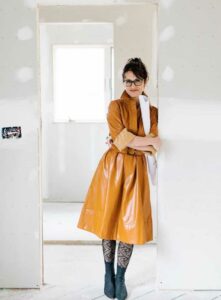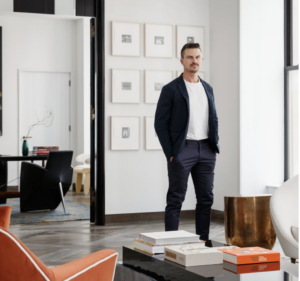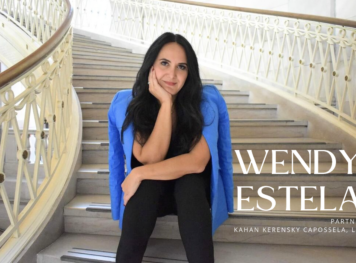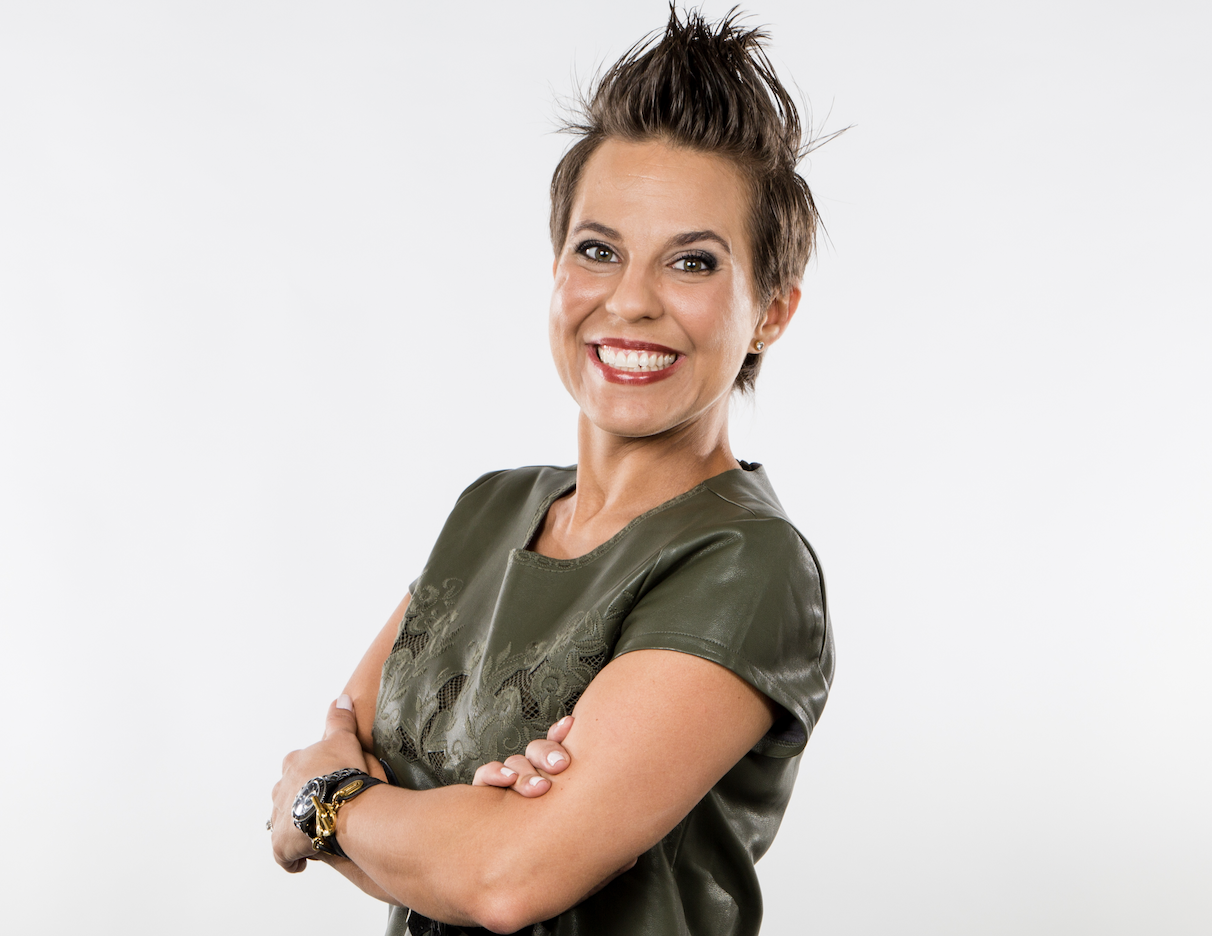
‘The Energy YOU Create’
By Lindsay Field Penticuff
It sounds so simple: “Do what you love.” But what if you’re doing what you think you love, yet you haven’t quite figured out what you actually love doing within your profession.
As an interior designer, coach and speaker, Katie Gutierrez has had an opportunity to speak to and work with interior designers from all across the country. Something she hears quite a bit during her initial calls is that while an interior designer may enjoy their work in this industry, they are often still searching for their niche within the industry.
She has also learned that it’s not uncommon for an interior designer to realize that the “missing piece” in their business may not necessarily be just a strategic plan or marketing plan, but the work they are doing on themselves and for themselves. For more about Katie and Biographical Design
“That’s why I work in tandem with a therapist,” says Gutierrez, who owns and operates Errez Design Studio in Miami with her husband, Ruben. “When I enroll people into my program, I don’t say, ‘Come for therapy,’ because they don’t know it’s the thing in their way.
What they think is it in their way, is, ‘I don’t have a strategy for sales,’ or ‘I haven’t systemized my process.’”
“They come in to talk about systemizing, and I guess I have this way, something about me that when people get on the calls with me, they open up, and sometimes cry, and they tell me about how they just went through some thing,” she adds. “They ask me to talk about systems, but what they really need to talk about is how they don’t feel good enough.”
Gutierrez has learned through the years that sometimes interior designers can’t figure out what is wrong with their systems, strategic plan, or sales until they learn about what’s going on inside them.
“That’s true of almost everything in life. You can answer any question with that little device in your pocket [cellphone], but it’s usually the case that there’s an emotional block.
I know I have to support them with the emotional block in order to support the thing they didn’t think they knew how to do. Once we get rid of the emotional block, then I get to say, ‘Well, what could a strategy be?’ Then, they figure it out!”
And it’s because of this discovery that Gutierrez’s No. 1 piece of advice for interior designers is to hire a business coach.
“The difference between a novice runner, who runs in the neighborhood and maybe runs in a few marathons here and there, and an Olympic runner is that one has a coach and one doesn’t,” she says. “A person cannot do on their own, what they can do with others.”
We insure everything—our car, our house, our business. But oftentimes, interior designers don’t think about “insuring” themselves.
“If you’re not investing into your business being the most successful it can be, every single thing in your life that revolves around that business is in danger of failing,” Gutierrez says.
“Your business holds the pathways for everything else in your life, particularly as it relates to money—whether you go on vacation, where you go on vacation and how much you spend, the car you drive, the house you live, how much you donate to charity, where your kids go to school. Everything is sort of intertwined.”
She believes that every decision that has to do with money and time, has to do with how successful your business is, and it only makes sense to want to invest in it—financially and energetically.
“Are you living out your passion or do you feel overworked and burdened? If you feel those things, chances are, your business is not making as much money as it could,” she says. “Your whole life has to do with how well your business is operating and how well you’re operating inside of it.”
Her first step in coaching interior designers is doing what she refers to as a biographical discovery.
It’s an opportunity for Katie Gutierrez to uncover all the things in a client’s biography that make them who they are today so that she’s able to help them create a business that is a vehicle of their self-expression in this world.
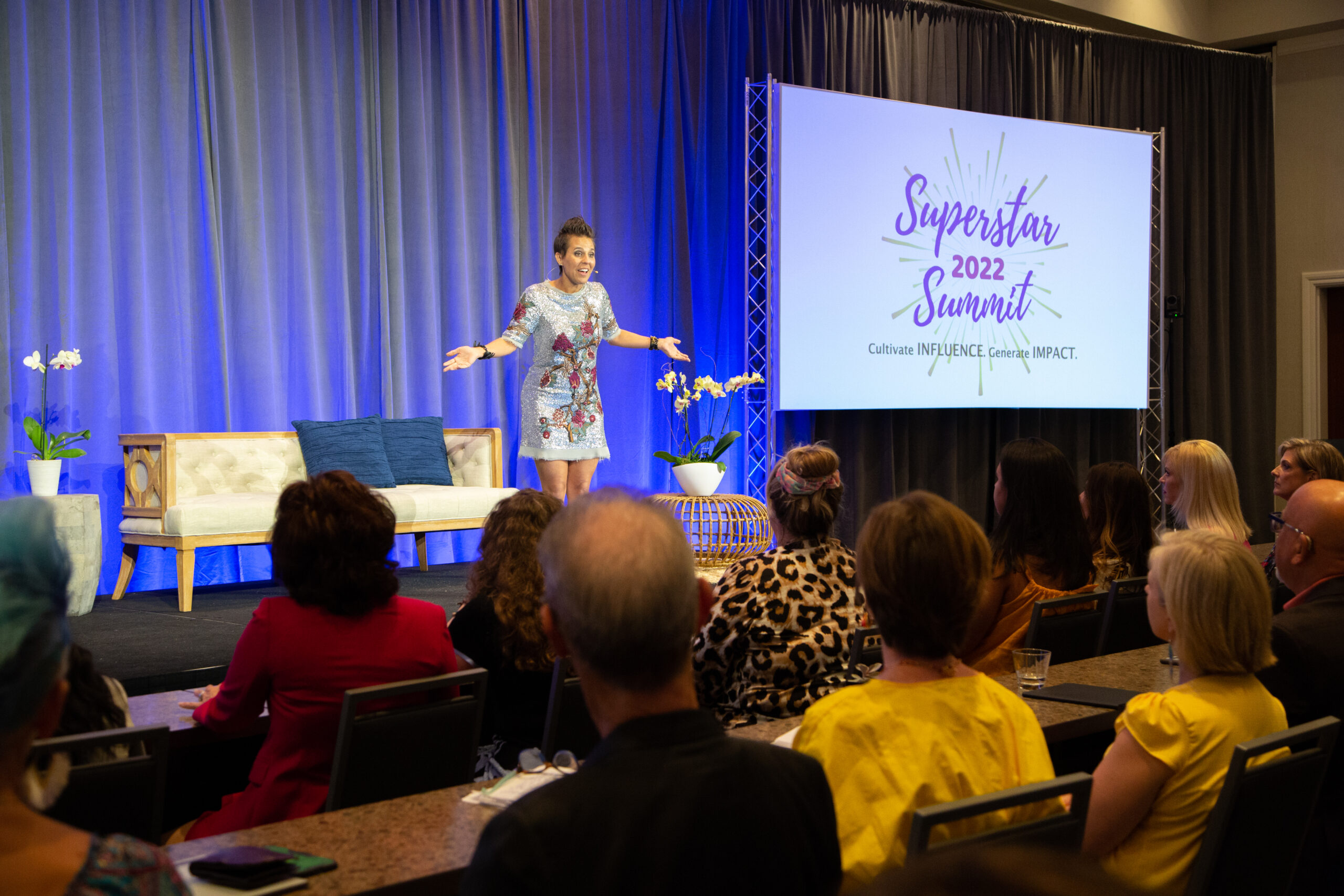
“When someone has a business that gives them permission to be authentic in this world, their business is a totally different business, both in the way that it gives to the world value and how it gives to the designer value and return,” she says.
“Their business should be the point of passion for them and a stage for their heart to come play,” she adds. “That is a very different business than a designer who is showing up in ‘shoulds.’ And it’s a totally different energetic.”
Gutierrez says that when a designer is inside a business that is giving them permission to be fully expressed and is the vehicle for their heart to come play in this world, they’re affecting their clients in very massively different ways than before.
“The more they can affect their client with high value, the more they are able to see value back, in terms of money, impact and passion,” she says.
Another thing Gutierrez often does while chatting with clients is ask them to place their hands on their heart or stomach, or both, and close their eyes, then take three deep breaths.
“I then ask them, ‘What would you love for your business?’ It’s different energy than when I ask someone, ‘What would you like for your business?’” she says.
An example of this is a designer who was doing “bespoke services to meet the clients’ needs.” This particular designer liked her job, but didn’t love it, Gutierrez discovered. However, through the biographical discovery process, she learned that this client had a real passion for children growing up in their home.
“Through my coaching, we helped craft a business in which she is now an expert in forever home design,” Gutierrez says. “We crafted how that looks, what the strategy and structure is behind that. We came up with five pillars of how we do forever home designs.”
For example, how families track time with their children. This could be taking a first-day-school-picture in the same place at a home each year.
“If you’re a family that does that, how do we design the front door and front porch to be a capsule to celebrate that moment? How do we design the home to build that legacy for your children? How do we capture that in terms of design?,” Gutierrez says.
“And now she loves her job. If her heart is coming to play in her work, the outcome will be so different.”
A Little Bit More About Gutierrez
Gutierrez and her husband, Ruben, first started Errez Design Studio in 2009. The couple studied architect in college, and while they both enjoyed their jobs in the architecture field, Gutierrez says they wanted more—something was missing.
“I was working on municipal buildings and my husband was working on medical laboratories,” she says. “Working on those kinds of projects, you don’t work with the end user. You work with the project manager or the city planner or city council.”
Through a lot of late-night talks, Katie and Ruben discovered that the missing piece for them was the lack of end user relationships in their work.
“My husband had been working for an interior designer named Alison Spear in college and he had an experience working with an end-user working with her.
So, he called Alison and told her we were interested in switching gears. She gave us our first project out of generosity to help us launch into this and step into this new version of ourselves and this new version of creating a business for the first time,” says Gutierrez.
And as far as owning and operating a business with her husband? Gutierrez admits she doesn’t know how to work any other way.
“The year we got married is the year we opened our business, but what I do know is that if we can run a business together, the way we run our house is easy,” she says.
“He is my best friend and my partner, and I feel like going through the challenges and struggles of owning a business together deepens our bond so much so that when we come home, it’s ‘we’ had a challenging day today, and ‘we’ both understand.”
The couple also holds one another accountable by growing together, visioning together, and making sure they are aligned in their home and business.
“In a lot of ways, our commitment to our business teaches us how to be committed to each other,” she says, adding that they also both work with mind coaches, equally walking in the journey together of self-discovery so that they are better individuals first so that they can then be better business owners, business partners, home partners and parents.
“The business is the spark that ignites all of that to happen, and I often wonder, ‘How do people do it without that spark or reason?’” concludes Gutierrez.

